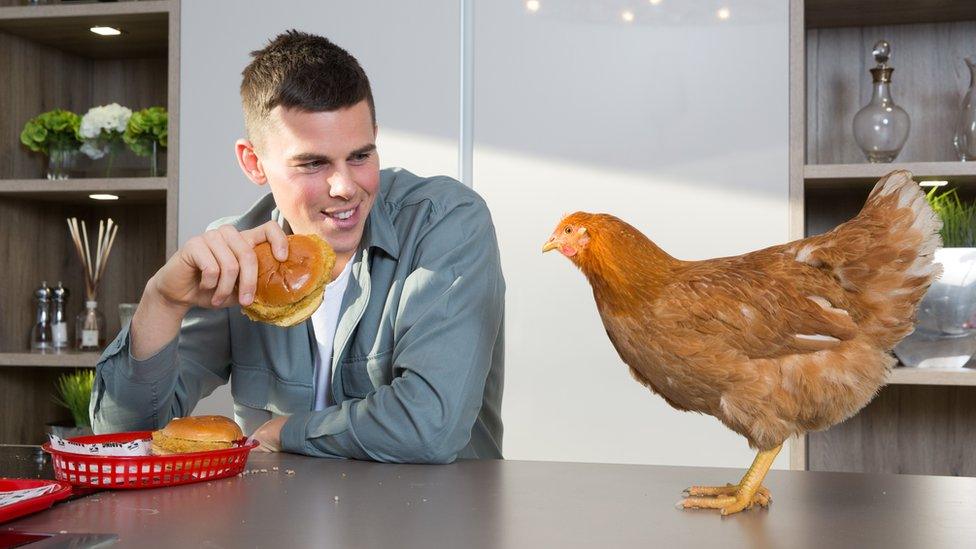'You can succeed as a vegan athlete'
- Published
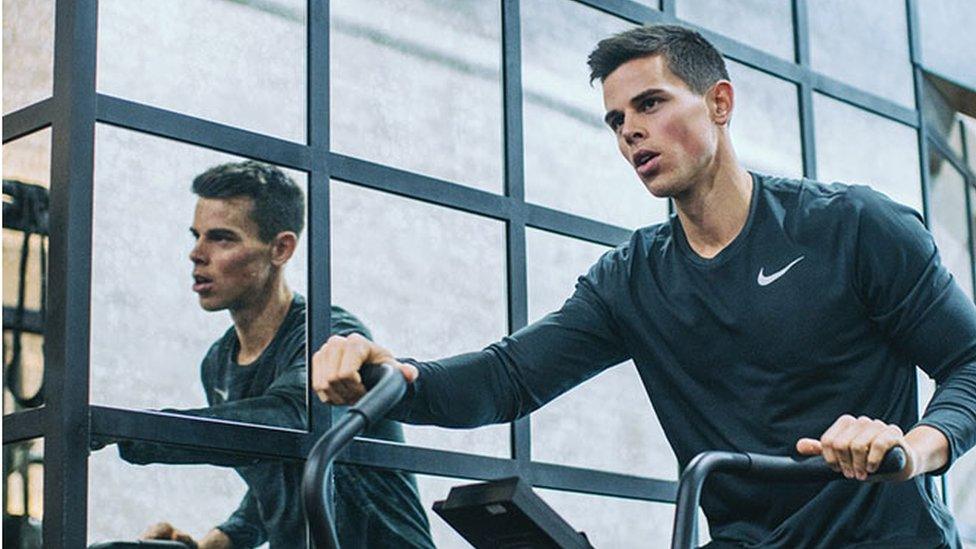
Ross Mackay is training for a half Ironman event
In his own words, Ross Mackay used to be "a steak and eggs for breakfast kind of guy".
He had always been into sport - eventually representing Scotland at tennis in his teens.
"It's a sport that I actually had such passion for that through ages 12, 13, 14, it was something I really wanted to do full time.
"I played for my country a few times. I had the experience of being coached by Judy Murray in Stirling up to the age of 16 or 17 when I stopped playing tennis and started getting involved in other sports such as playing rugby and athletics."
When Ross decided to become vegan, he had to learn fast about what food his body needed, and how he could fuel himself without animal products.
"It was definitely just a level of education I think," he tells the BBC Scotland news website.
"I was perhaps a bit naive jumping in and thinking I'll never get the protein I require from plants but actually you can, you really can."
Strength and size
Ross says that, as a young athlete, he never really thought beyond having a conventional diet rich in energy and rich in protein.
"Growing up, like everyone really, you're told that you've got to drink milk for strong bones, you've got to get your protein in and have a balanced diet of animal protein and that was never an issue for me growing up.
"I always had a good appetite and enjoyed eating animal products.
"When I got to the age of 17 or 18, when you get into potentially training in the gym, as many guys and girls do, you start to be encouraged to supplement extra protein through animal products into your diet to gain strength and size or physical appearance.
"I did become obsessed with eating as much animal protein as possible."
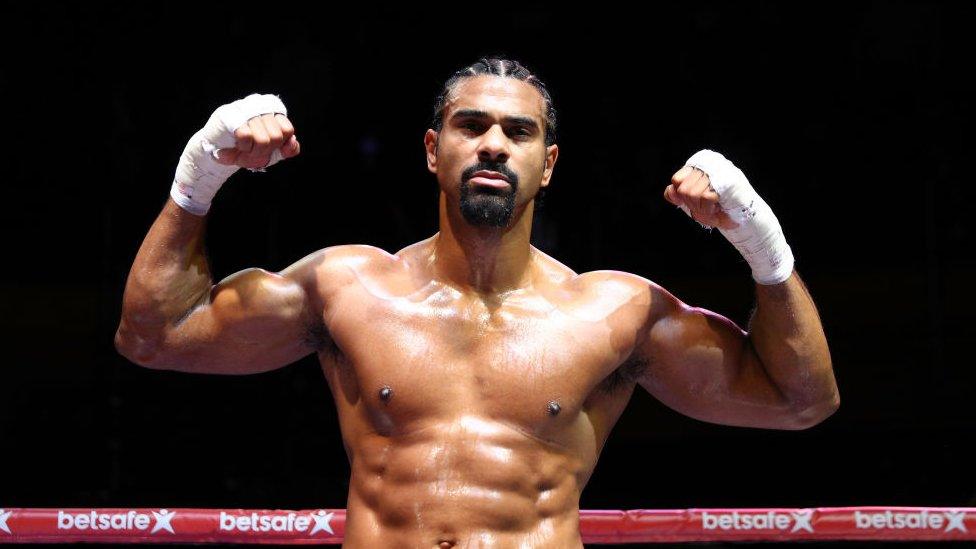
British former heavyweight world champion David Haye turned vegan after researching the most efficient ways to recover from injury
A number of high-profile figures in sport do not eat animal products.
They include retired heavyweight boxer David Haye, tennis players Venus and Serena Williams, and footballer Jermain Defoe.
Now 28, Ross stopped eating animal products four years ago.
At first, he wasn't sure how he would replace the meat and dairy protein in his diet.
"When I did start I was very active - I've always been active - so straight away there was almost this belief - where do you get your protein from?
"That's the biggest question if you don't eat animals. Where are you going to get your essential amino acids from?"
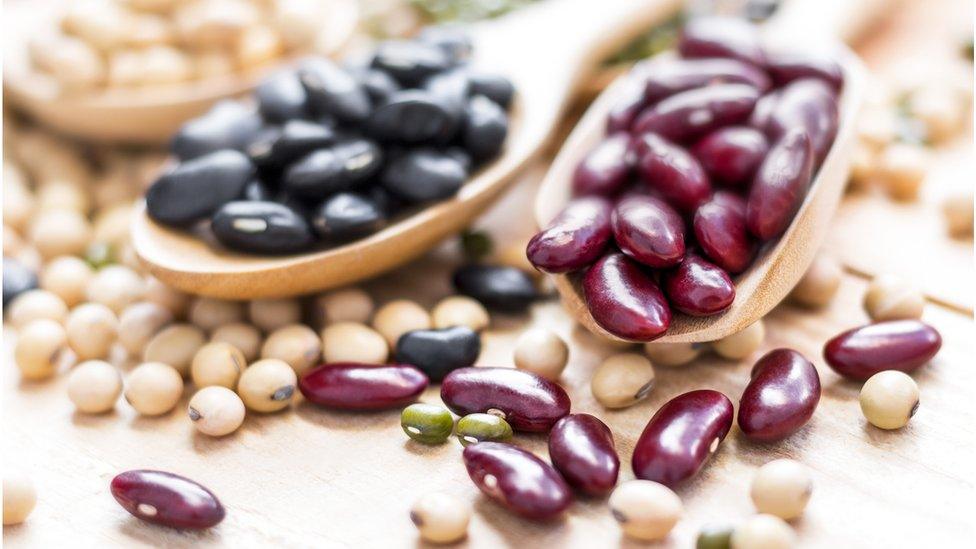
Dieticians say it can be people like Ross, making a sudden change in what they eat, who face the biggest challenges.
Emma Kinrade is a lecturer in nutrition and dietetics at Glasgow Caledonian University.
"It is harder if somebody completely switches what they eat," she says.
"If somebody has a lot of plant-based foods in their diet already and not much meat and fish it wouldn't be as hard.
"But if it's a complete switch from a low vegetable, low fruit, high meat diet, then it can be quite difficult."
She believes it is mainly a question of thinking carefully about food intake.
"A vegan would have to substitute getting protein from nuts and beans and pulses, and things like grains - quinoa, etc.
"It is absolutely possible to meet protein requirements. You just have to be a little bit more careful and also try to use milk substitutes - soya milk, rice milk, almond milk - things like that supply plant-based protein."

Can vegans take part in sport?
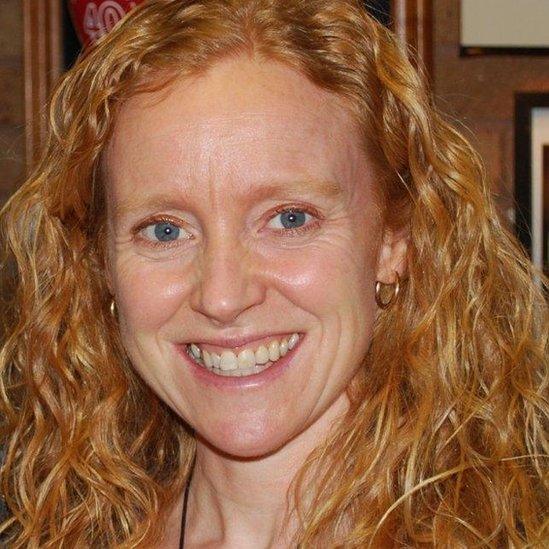
Emma Kinrade teaches nutrition at Glasgow Caledonian University
Ms Kinrade says that besides the potential low energy and protein intake from an active person switching to a plant-based diet, there are other nutrients such as Omega 3 fatty acids and certain vitamins and minerals that vegans can also become low or deficient in.
These include calcium, vitamin B12, vitamin D, iodine, zinc and iron. Careful use of fortified products, other plant-based sources and supplementation can prevent any deficiency.
But she emphasises that it is possible for vegans to find the nutrition they need.
"They would have to be careful initially with the energy that they consume.
"When you cut out energy-dense nutritious food such as dairy products, meat products or fish, then that can have an impact on the amount of energy that somebody would be able to take in.
"If somebody's got high training demands then energy efficiency is really key.
"Another nutrient that people are concerned about when they become vegan is protein.
"You're taking away quite a lot of the main staple sources of protein in a general meat-eater's diet."

For Ross, his interest in food has become his work too. He is co-founder of Glasgow-based Daring Foods, a supplier of vegan-friendly food.
Now training for a half Ironman event, he believes the change in his diet has brought positive benefits.
He said that after suffering quite a bad injury in his legs he recovered more quickly than he expected.
Ms Kinrade says Ross would not be alone in believing a vegan diet can be combined with intense physical activity.
"There are many top-class, world-class athletes who are vegan and whose physique is fantastic.
"It's not a detriment to them to eat plant-based.
"I think the old-fashioned belief that we need meat, we need that protein as a staple is very out of date now.
"We can live perfectly well and happily and be a good athlete eating plant-based protein."
- Attribution
- Published27 September 2017
- Published10 January 2019
